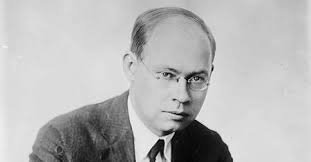Please wait while flipbook is loading. For more related info, FAQs and issues please refer to DearFlip WordPress Flipbook Plugin Help documentation.
For those who delight in exploring the seamier side of the Gilded Age’s elite circles, we present a riveting entry into the world of Arthur B. Reeve’s influential crime fiction. As this taut mystery novel The Social Gangster becomes available in a free ebook edition, modern readers can experience one of the earliest examples of the “underbelly of high society” thriller that would profoundly shape the genre.
Published in 1914, The Social Gangster emerged as the sixth installment of Reeve’s celebrated Club Feudor Crime Series featuring the pioneering techniques of socialite criminologist Quentin Locke. Set amidst the rarefied environs of New York’s upper crust, the novel thrusts Locke into investigating a spree of daring heists plaguing the city’s wealthiest households. What unfolds is a race to unmask the culprits behind a startling criminal enterprise hidden within the highest echelons of polite society itself.
Arthur B. Reeve
From its dramatic opening depicting a brazen robbery at the lavish home of crusading District Attorney Marquis, Reeve swiftly establishes the tale’s intriguing central mystery. With no sign of forced entry and the victims’ prized possessions stolen from under their very noses, Locke deduces a highly sophisticated approach by an organized underworld targeting the elite. The “social gangsters” move discretely among their unsuspecting prey, even as their heists grow bolder and more lucrative with each successful score.
Aided by his trustworthy compatriots Walter Huntley and Lefty, Locke relentlessly employs his pioneering scientific forensics skills to meticulously study each crime scene’s minutiae for potential evidence and clues. Reeve vividly captures Locke’s analytical mindset, as he sifts through hair strands, tobacco ashes, and trace chemicals to uncover potential leads about the masterminds exploiting the wealthy patrons’ sense of impunity. With the robbers demonstrating an uncanny knack for anticipating security measures, the case takes on deeply personal stakes as socialites fear losing not just their riches but their elite status itself.
While unraveling the tangled threads of this mystery, Reeve immerses us in the posh environs of Upper East Side aristocracy circa the 1910s. We attend glitzy soirees at edifices like the Metropolitan Opera House and the McAlery mansion, where tuxedos and designer gowns provide cover for the gangsters slipping through the fixed social strata. Reeve luxuriates in these contrasting depictions of opulence and desperation, whether detailing the latest Parisian jewels or chronicling the resourcefulness of an orphan pickpocket like “the Shadow” in aiding Locke’s pursuit.
Crucially, The Social Gangster belongs to that pioneering era before modern forensic science had fully established its authority and reliability in investigations. Reeve vividly depicts the disdain and derision that greets Locke’s initial suggestions of chemical analysis and psychological profiling – only for the evidence to ultimately prove indispensable. These portrayals of scientific innovation punctuating the twists and turns lend authenticity to the tale’s unfolding mystery.
Of course, the overarching sense of paranoia and claustrophobia surrounding the novel’s upper crust targets imbues this particular case with unnerving psychological depth. Beyond the ostensible motive of financial gain, Locke intuits deeper resentments and prevailing “class warfare” fueling the Social Gangsters’ ruthless precision. He theorizes the theft ring to be a calculated assault on society’s governing strata, perpetrated by the dispossessed yet socially embedded among them.
This supposition adds tantalizing layers of societal tension when the criminal conspiracy inevitably extends into the upper-class domains. Hidden agendas intertwine with sordid personal affairs in a gradual unraveling that forces Locke to confront the corruption and entitlement festering behind the veneer of respectability. Reeve deftly captures the internecine conflicts and gossip roiling below decorum and discretion among America’s burgeoning power elite.
As The Social Gangster accelerates towards its shocking climax, Reeve demonstrates his mastery of suspenseful pacing and dramatic reveals. Locke’s investigation turns into a high-stakes pursuit of justice as both the robberies and their perpetrators escalate into deadly violence once their exposure seems imminent. The resourceful criminologist deploys the latest technological innovations, from microscopic analysis to handwriting analysis, to steadily close the noose around the thieves in classic cat-and-mouse fashion.
Upon its publication, The Social Gangster was hailed for deftly integrating these pioneering forensic practices into a compulsively readable mix of lurid crime and high society intrigue. Its contemporary reviewers lauded how Reeve “deals with something more than the mere mystery and cold calculations of crime” by depicting a haunting portrait of urban stratification and class resentments. Indeed, the story delves into the sinister lengths the aggrieved yet privileged would take to undermine the very system sustaining elite comforts.
Beyond its entertainment value, The Social Gangster provides invaluable insights into the evolving 20th century crime novel by virtue of its distinctive blending of genres. Reeve leveraged his unique backgrounds in both law enforcement and literature to infuse the mystery format with sociological heft grounded in the era’s profound transformations. Class resentments, technological disruption, and corrupting privilege all infuse the breathless adventure.
By freely providing this seminal text from 1914, modern readers can experience one of the ur-texts that would inspire everything from the hardboiled detective tales to psychological crime thrillers centered around wealth’s darker underbelly. The Social Gangster endures as a landmark for not just envisioning the “gentleman criminologist” archetype but depicting the inescapable societal tensions facilitating ingenious illegality, even among the most rarefied coteries. Arthur B. Reeve’s gripping synthesis of mystery and cultural commentary warrants rediscovery by a new generation of discerning readers.
Read More..






https://virtual-local-numbers.com/countries/1300-new-york-phone.number.html
заказать свадебное видео озеро комо
https://public.tableau.com/app/profile/rent.carfy/vizzes
I apologise, but it does not approach me. There are other variants?
https://1x-bet-india.com